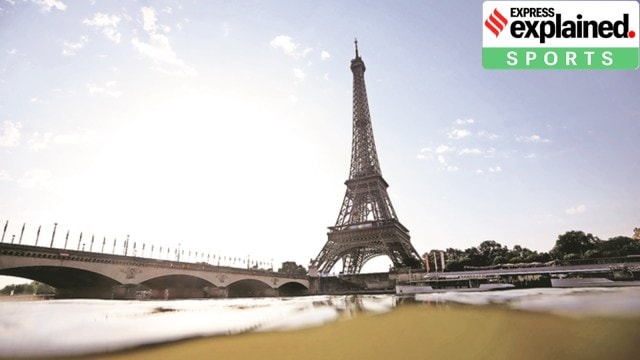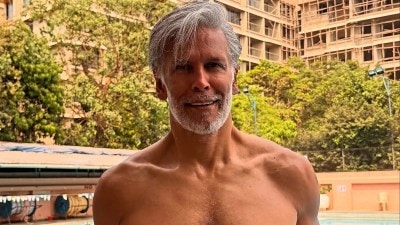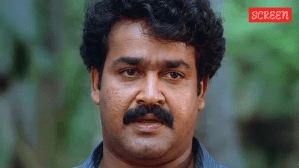Why River Seine’s water quality poses a challenge for the Paris Olympics
The city also attempted to renovate the sewage system and upgrade its water treatment plants.
 The iconic Seine river with the Eiffel Tower in the background. (Image source: Reuters)
The iconic Seine river with the Eiffel Tower in the background. (Image source: Reuters)Written by Saima Mehta
The swimming leg of the men’s triathlon event in the ongoing Paris Olympics was postponed on Tuesday, over concerns regarding River Seine’s water quality. In the run-up to the Games, organisers had spent over a billion dollars to improve the river’s condition. The Seine has long been polluted, so much so, that swimming in the Seine had been banned since 1923.
Old drains, E. coli threats
Paris’ aged sewage system is designed such that rainwater and wastewater flow through the same pipes. During heavy rain, these pipes reach their capacity and overflow, leading to untreated sewage being directly discharged into the Seine instead of first going to a treatment plant.
Moreover, rains also lead the Seine to be inundated with wildlife like rodents. “When it rains a lot, all of that from those animals can end up in the Seine,” Dr Nicole Iovine, an infectious disease specialist at the University of Florida Health in Gainesville, told the Associated Press.
A major issue is the concentration of the bacteria E. coli in the river. Found in the faecal waste of humans and other animals, some strains of the bacteria can cause severe illness, including gastrointestinal and urinary tract infections (UTIs). E. coli concentration levels are measured in colony-forming units (cfu). Up to 900 cfu per 100 ml of water is considered safe for competitions, per standards set by the European Union and the World Triathlon Federation. Following heavy rains, the Seine’s E. coli levels often exceeded this threshold, sometimes by a factor of two.
A billion-dollar plan
To fix the Seine’s pollution problem, Paris has spent 1.4 billion euros ($1.53 billion). In fact, key to Paris’ winning bid for the 2024 Games was a major environmental overhaul of the city. This included a promise to ensure that Olympic athletes could swim in the iconic river, much like they had done in 1900 — the last time Paris hosted the Olympics.
Central to the city’s efforts to fix the Seine was the creation of a giant underground rainwater storage tank in southeastern Paris, capable of holding enough water to fill 20 Olympic-size swimming pools. Planners believed this would hold runoff water during heavy rains, the sewage system from getting overwhelmed.
The city also attempted to renovate the sewage system and upgrade its water treatment plants. But heavy rains can still overwhelm the system and contaminate the river — as we see now.
The alternatives
The triathlon swimming events were scheduled for July 30 and 31, and August 5, while the marathon swimming events (also to be held in the Seine) are to be held on August 8 and 9. Water quality tests are mandatory 48 hours before each race. Reserve days have been kept for the water quality to improve.
For marathon swimming, the Vaires-sur-Marne Nautical Stadium near Paris has been kept as an alternative venue. If the Seine remains, the swimming leg of the triathlons may be cancelled.
(The author is an intern at The Indian Express)
- 01
- 02
- 03
- 04
- 05






































